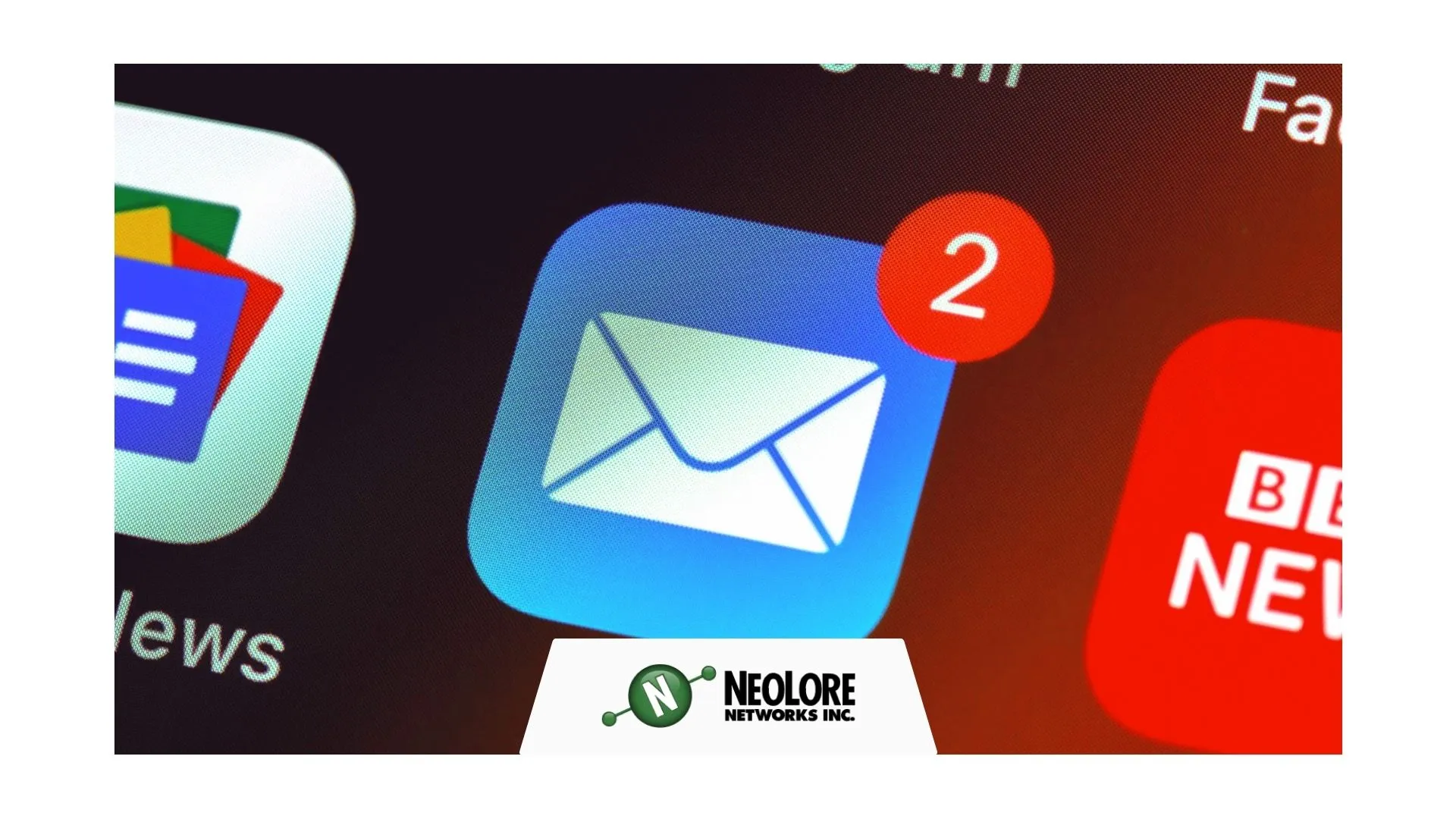Email Security For Small Businesses: Tips & Tricks
Posted on Tuesday, December 30, 2025 and filed under Articles

With the rise of instant messaging and chat portals, it’s easy to assume that email communication is dying out. Yet, 72% of businesses still report it as their number one form of communication and 84% of teens report using it daily. Given the continued prevalence of email communication, it makes sense that small business email security remains a big concern.
| “Email protection remains as important as ever. People still use their email accounts in high numbers and attackers are constantly adapting to public awareness” – Jim Stackhouse, Founder & Chief Technologist, NeoLore Networks |
Such prevalent usage also makes it unsurprising that 91% of successful cyber attacks begin with phishing emails. This remains the case in spite of the widespread, increased awareness of phishing attacks. In fact, this awareness is exactly why hackers are getting more clever with their email-based attacks.
To help you maintain your business email security, this article will explore expert tips and tricks you need to follow in the face of increasingly sophisticated email threats. We’ll show you what your small business can do even with limited funds and resources.
Implement Multi-Factor Authentication (MFA)
MFA adds an extra layer of security beyond just a password. First, choose a MFA method, such as a mobile device app or SMS codes. Then, guide your team through setting it up on their email accounts. Using MFA means even if a password is compromised, unauthorized access to your email is still blocked.
Create a Strong Email Backup Strategy
Protect your business from data loss with a reliable backup solution that automatically saves copies of all emails. Ensure your backup system is secure and easily accessible in case of an emergency. Regularly test the recovery process to ensure you can restore emails if needed.
Use Encrypted Email Communication
Encrypt important emails to protect their contents. Start by selecting an email encryption tool that’s easy to use and integrate into your current system. Train your team on when and how to use encryption for emails. Having encrypted email for small business ensures that even if an email is intercepted, its contents remain unreadable to unauthorized individuals.
If you’re not sure where to start, here is an overview of common email encryption methods.
| Encryption Method | Description | Ideal Use Case | Complexity |
| TLS (Transport Layer Security) | Encrypts the connection between email servers to prevent interception during transit. | General email transmission, particularly useful for business-to-business communications. | Medium |
| PGP (Pretty Good Privacy) | Provides cryptographic privacy and authentication for email communication. It can encrypt, decrypt, sign, and verify emails. | Sensitive communications require strong encryption and authentication. | High |
| S/MIME (Secure/Multipurpose Internet Mail Extensions) | Used for signing and encrypting email messages. It allows users to send encrypted emails and digitally sign them. | Business exchanges where authentication and confidentiality are critical. | High |
| End-to-End Encryption | Encrypts messages directly between sender and receiver. Ensures only the sender and intended recipient can read the email. | Private conversations where ensuring only the intended recipient reads the email is crucial. | Medium |
Monitor Email Accounts For Unusual Activity
Keep an eye on employee email accounts for signs of unusual activity. Set up alerts for suspicious actions like multiple failed login attempts or emails sent to unusual recipients. Regularly review these alerts and investigate any anomalies.
Limit Email Retention Periods
Set policies for how long emails are kept in your system. Long-term storage of unnecessary emails can pose a security risk. Decide on a reasonable retention period for different types of emails. Communicate this policy to your team and implement it through your email gateway’s settings.
Regularly Update Email Software & Systems
Maintain secure email software by keeping it up-to-date. Developers often release updates that fix security vulnerabilities. Set up automatic updates or regularly check for new versions. Educate your team to do the same on their devices.
Utilize Advanced Email Filtering Solutions
You can enhance your threat protection by using advanced email filtering solutions. These systems use sophisticated algorithms to detect and block harmful emails before they reach your inbox. Start by selecting a reputable email filtering solution for small businesses as they suit your business size and needs.
| Keeping Your Email Secure Starts With Securing Your Whole IT System |
Regularly Audit & Review Email Security Solutions & Practices
Regularly assess and improve your email security practices. Schedule periodic reviews to evaluate the effectiveness of your current measures. Seek feedback from your team and consider engaging external experts for audits.
Want More Advice on How You Can Enhance Your Business Email Protection?
Effective password management and utilizing these tips and tricks is the best way to ensure secure emails for small businesses. However, there are a lot of unique ways to use email. Perhaps, you use cloud email, perhaps you use multiple accounts per employee, or use another system beyond Office 365.
If you need additional assistance improving your email security, cybersecurity experts from NeoLore Networks can help. Our IT consultants can offer advice on what strategies you can implement, while our network monitoring service can watch for unusual activity.
We also provide:
Contact us today to get started.
